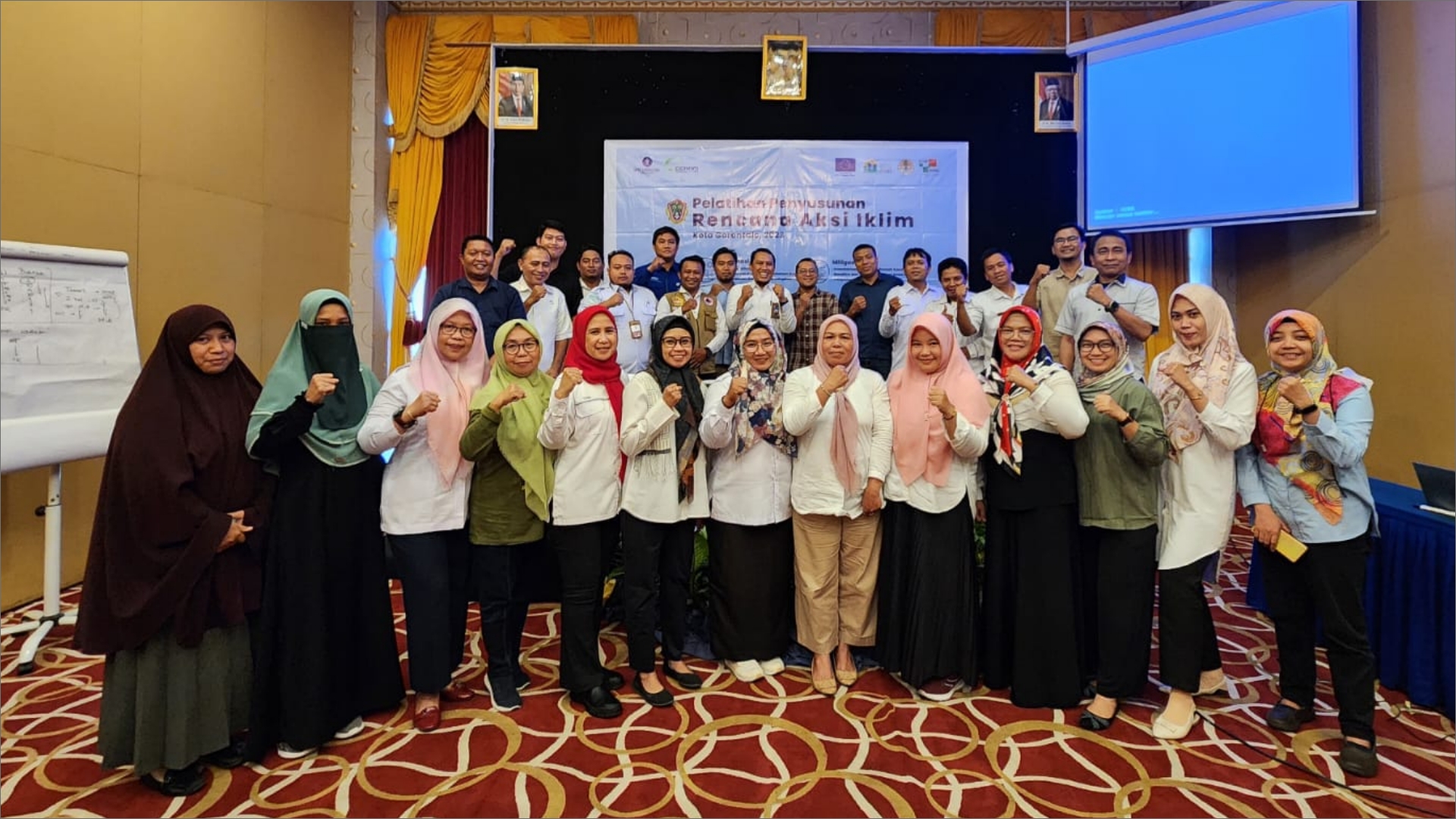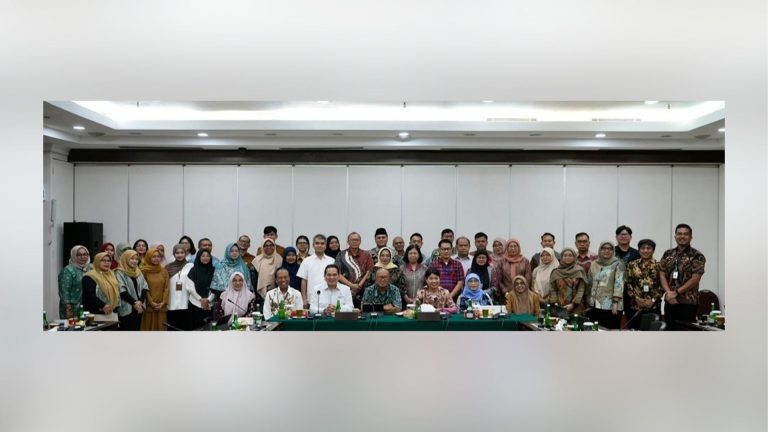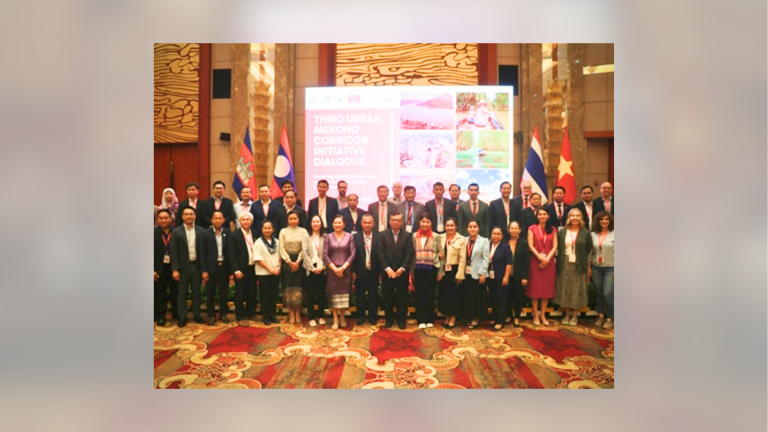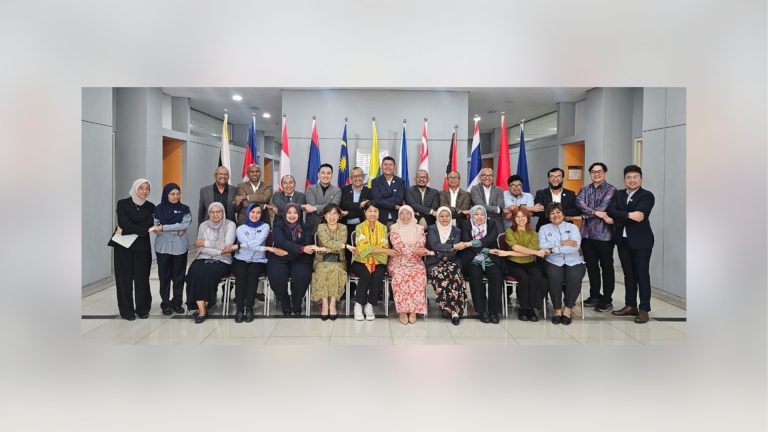July – August 2023 | UCLG ASPAC, under the framework of the Climate Resilience and Inclusive Cities (CRIC) Project co-funded by the EU, facilitated technical assistances to Gorontalo, Mataram, and Pekanbaru to speed up their data collection process and to build the local governments’ capacity to measure city’s risks and resilience on climate change. The activity was held as part of the project’s adaptation training. City officials highly appreciate the capacity building activity highlighting the importance and benefits.
Pekanbaru
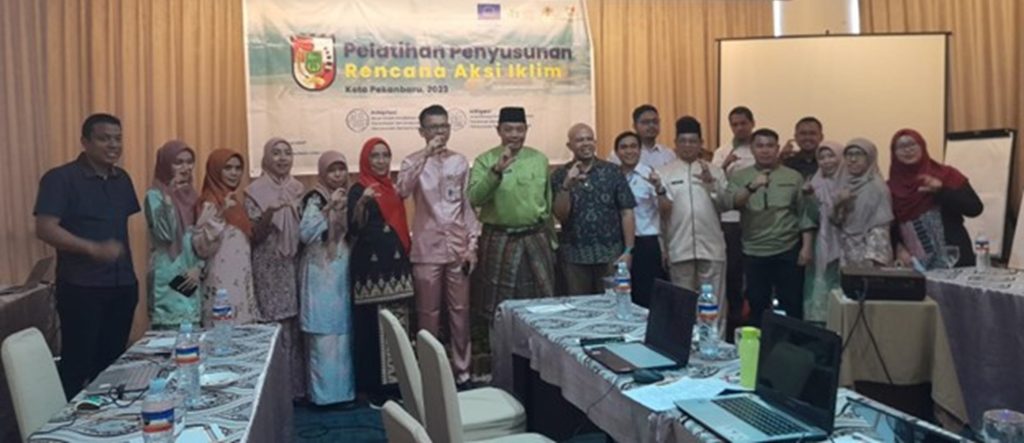
On behalf of the city Mayor, Mr. Ingot Ahmad Hutasuhut, Second Assistant of Municipal Secretariat, City of Pekanbaru, highlighted the importance of the city’s climate mitigation and adaptation plans in guiding the city’s middle and long-term development planning. “We have to make sure that the climate data reflects the actual condition of Pekanbaru City,” he said.
For the city of Pekanbaru, ACR+, represented by Mr. Danko Aleksic, had a chance to observe waste management in Pekanbaru City by visiting the city’s Muara Fajar landfill and meeting with city officials and communities involved in waste recycling and collection. ACR+, the Brussels-based organisation, is currently developing tools and training materials on decentralised solution for waste prevention and management.
Gorontalo

Ms. Nurain Lapolo, Director of Japesda, and member of CRIC climate working group (Pokja) stressed the value of the participatory approach in CRIC training programmes and the development of local action plans. According to her, another advantage of CRIC training is the introduction of steps and interventions that can reduce personal or political interests in development planning.
Overall, Gorontalo’s technical assistance (TA A2) yielded significant results with the Pokja completing the estimation of climate exposure, vulnerabilities, possible impacts, assessments in levels of urgency for flooding, and landslides.
Next, the CRIC Project will be working with the Gorontalo City Government – as a follow-up of this TA A2 by merging the results of tagging, and identifying quadrants in programmes and activities; while city stakeholders will work to set a target for reducing the potential impacts of climate change. This target will be based on the results of the calculations and the city’s existing resources and capabilities.
Mataram
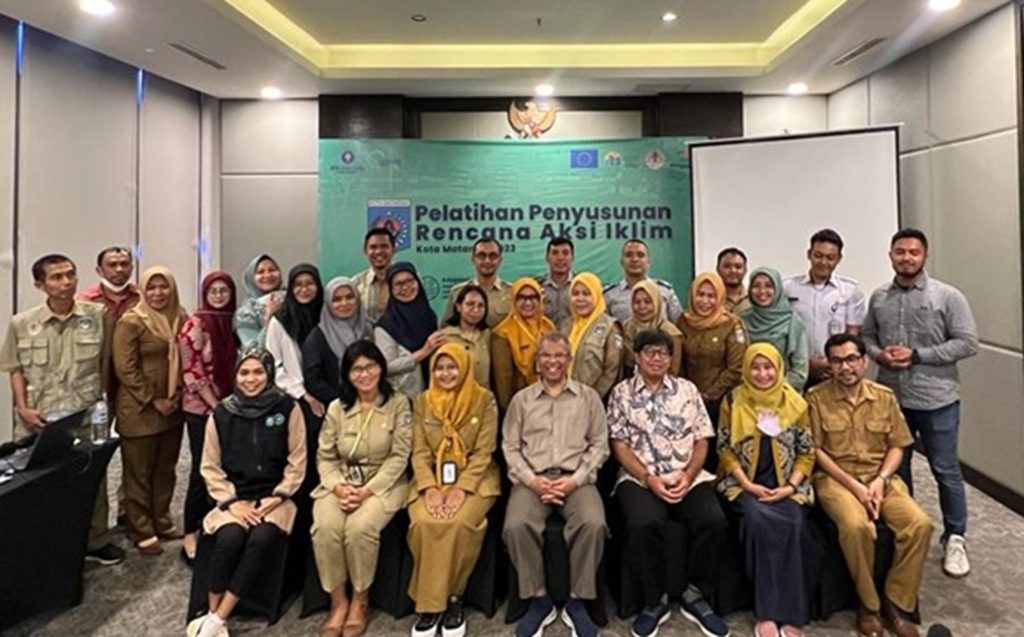
Mr. M. Sujayadi, on behalf of the Head of the Economic Planning and Natural Resources sector of Mataram City Planning Agency (Badan Perencanaan Pembangunan Daerah/Bappeda), conveyed his enthusiasm for the city’s journey toward achieving emission reduction targets and the necessity of data collecting. “The ever-important data is the foundation of effective and long-lasting mitigation action,” he stated.
During the training, the calculation of the waste sector’s baseline sparked talks about alternative waste disposal methods other than landfilling. The second mitigation training and technical assistance for the Mataram City Climate Working Group (Pokja) successfully assisted the working group members in revisiting the fundamentals of GHG emission reduction and continuing their active participation in identifying emission reduction options or opportunities.








